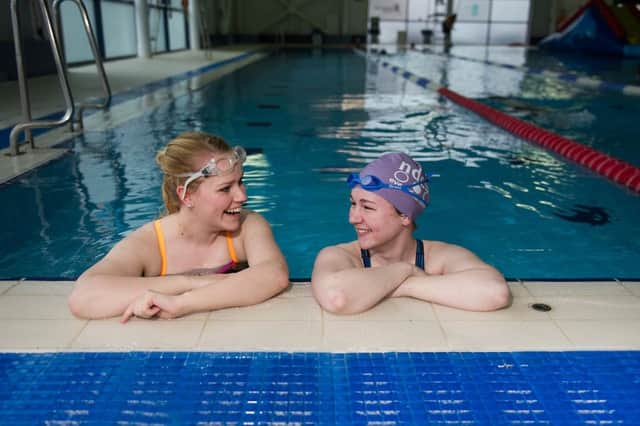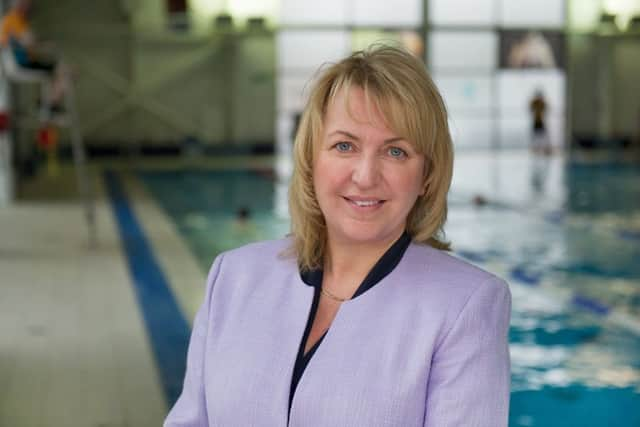Being deaf is no barrier to sport thanks to Scots charity


But now thanks to the work of a Scottish charity, she is not only participating but is in training to become a swimming instructor - something she never would have dreamed of as a child.
Launched last year, the National Deaf Children’s Society (NDCS) Swim Project gives instructors communications skills and techniques which they can use to teach deaf children and young people how to swim.
Advertisement
Hide AdAdvertisement
Hide AdLouise is the first deaf swim teacher to emerge from the programme which is now in its second year.


NDCS has already trained more than 100 coaches and hopes to expand the project this year.
“Growing up with hearing aids and doing sports, there was quite a big barrier”, explains Louise.
“You have to go through it by yourself, and there’s no one there to help you.
“It’s a lot easier if there’s a deaf person or instructor who is able to communicate with you, to encourage you to take up more sports. If you’re not able to take up sports it’s something you regret in later life.”


The project is funded by The Big Lottery Fund.
NDCS Swim Co-ordinator, Eleanor Connelly said: “Money goes towards organising and running swimming workshops with teachers to teach them how to adapt their activities and to train them in some basic sign language.
“Then we also set up swimming lessons for deaf children and we have a coach bursary scheme which helps deaf young people become swimming instructors. There’s also a competitive element to it as we organise a swimming gala so young people can meet and compete against each other.”
Enrolment in the training is completely voluntary for swim instructors. Each course, all of which have so far been oversubscribed, is open to 20 people. For those who don’t secure a place, resources are available with online courses also running for free.
Advertisement
Hide AdAdvertisement
Hide Ad“We’ve taken it to South Ayrshire, Glasgow twice with Glasgow Life and we’ve done the sign language part twice with Renfrewshire leisure”, Eleanor adds. “The next one is with Edinburgh Leisure at the Royal Commonwealth pool. What we say to people on the course is that it’s small and simple changes - it’s not a massive thing that you need to do.”
Teachers who have already gone through the training, have seen a transformation not only in the way they teach, but in the confidence of their students.
Katie Campbell, a swim instructor from South Ayrshire who is now trained, uses her new found skills in mainstream lessons . “We use the resources and booklets with all our teachers now. We’re going to be starting a deaf only class all over South Ayrshire.
“It’s changing the parents view that’s normally the barrier for us”, she explains.
“When they’re coming to lessons, it’s the parents that have got the questions. The kids are really keen and the staff are more than competent but it’s the parents that see the issues, but us being able to show that in smaller classes and environments they can actually be shown and taught safely, puts them at ease.”
For Rachel Paton, another trained deaf friendly swimming instructor for South Ayrshire Council, the training has changed the way she approaches her teaching.
“We’re more visual now. If there is someone there that’s got a hearing problem, you don’t just put them to the side, you just do it as a whole”, she says. “And the kids are picking up on it too, so they’ll try and help as well.”
There are over 3,800 deaf children in Scotland and as a young deaf person herself, Louise believe that the main thing that needs to be done is making people see that they too can participate in sporting activities. “We’re just the same”, she explains.
